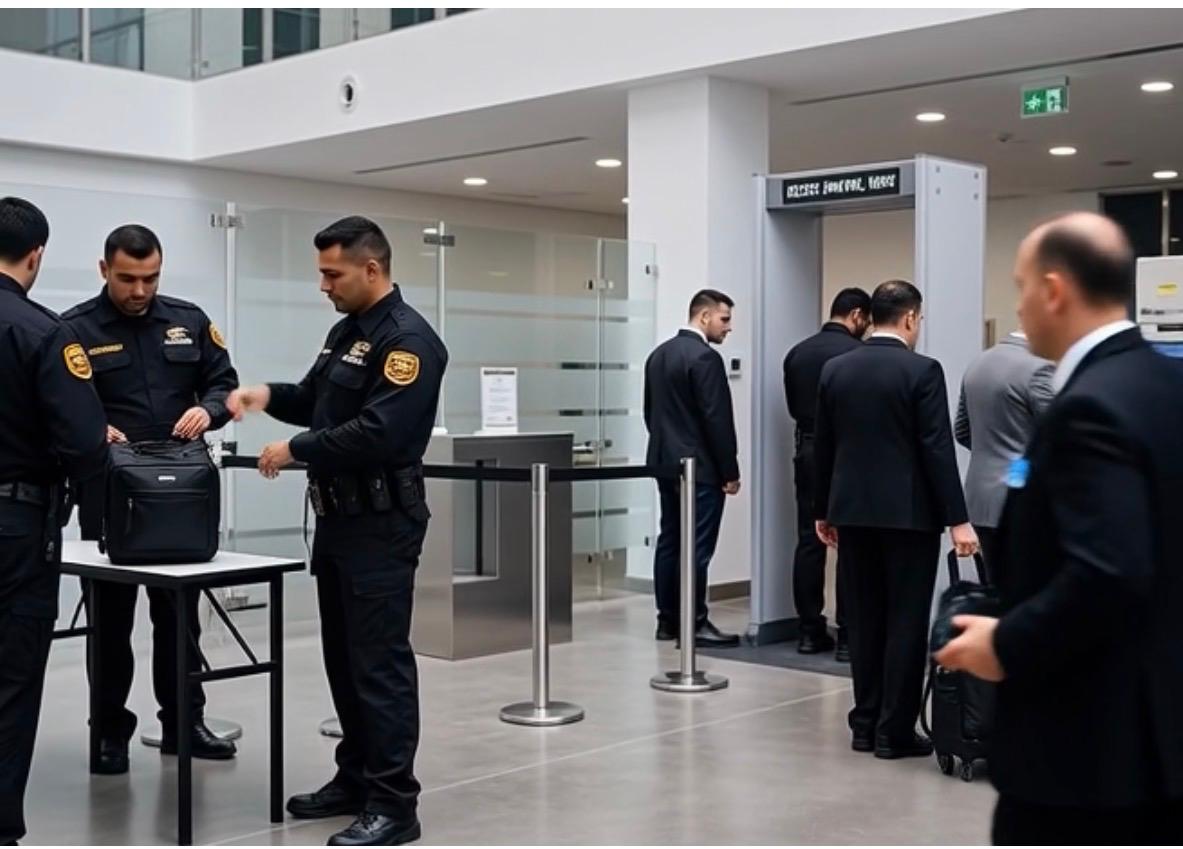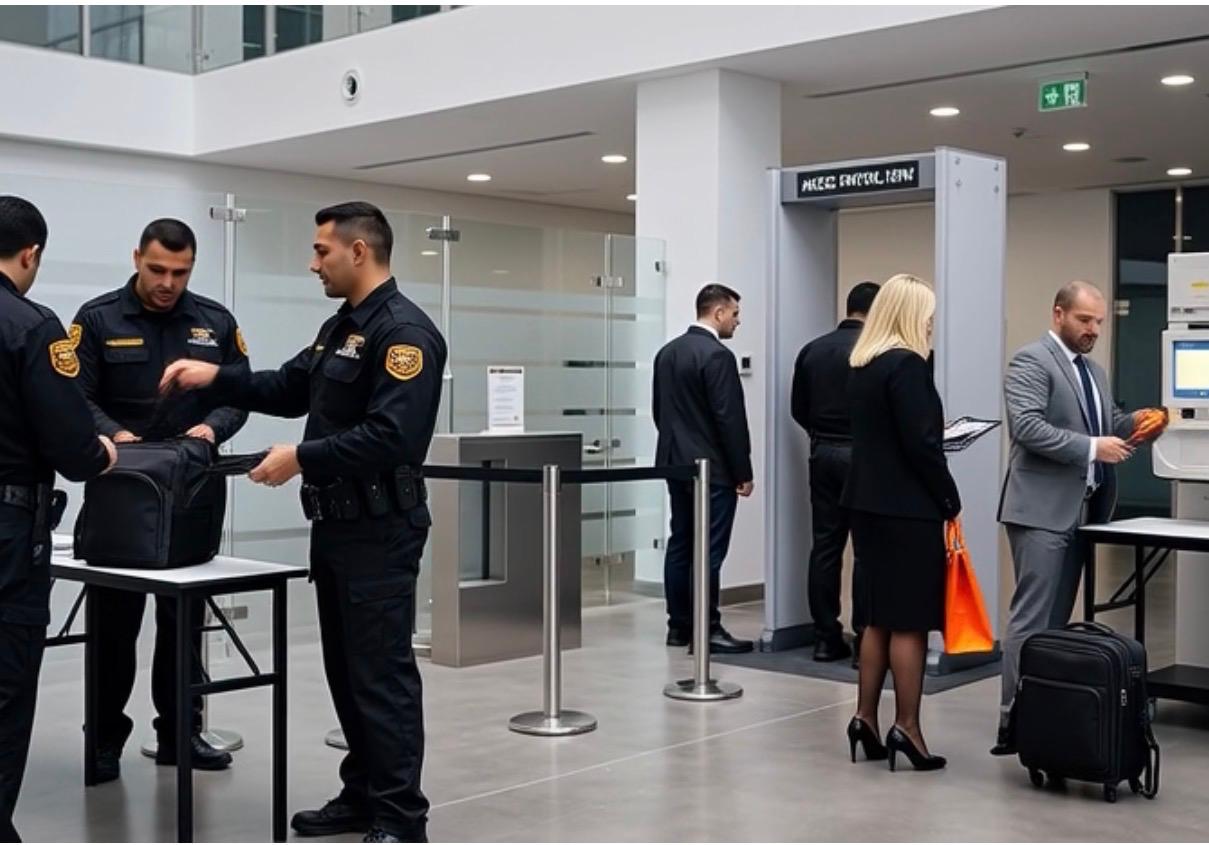
Loading...

Loading...

I used to believe in the unspoken agreement of New York City: safety in numbers. Standing on a packed subway platform, you feel like a million eyes are on you, so nothing can happen. It’s a comforting illusion. But in a city that never stops watching, the truth is, no one is really watching out for you. That constant churn of people creates a perfect anonymity not just for you, but for anyone with bad intentions. That quiet hum of vulnerability is where the real conversation about security begins. It’s not about a lock; it’s about drawing a line and deciding who belongs inside. A keycard can’t make a judgment call, and a camera only records what’s already happened. Real security, the kind that offers peace of mind, requires an intelligent, human presence—an active watch, not a passive system. This is the core of what a licensed Watch, Guard, or Patrol Agency provides, and it's where we at Swiftex Security Services start the conversation.
For the Residential Sanctuary: If you manage a residential building, you're selling a promise of home. But that promise feels thinner with every package that vanishes from the lobby or at the door. It’s not a minor nuisance; with an estimated 90,000 packages stolen or lost daily in NYC, it's a systemic failure. Add to that the hard fact that apartments are 85% more likely to be burglarized than single-family homes, and the unease is understandable. Property owners are caught in a legal vise. You have a "duty of care" to provide reasonable security, but the city’s Tenant Data Privacy Act imposes strict, costly rules on the data from modern systems like key fobs. A professional guard service cuts through this knot. It fulfills your duty of care and deters crime without creating a risky data footprint. For some residents, it also provides an unimpeachable, third-party record of comings and goings, offering clarity in complex domestic situations.
For Shelter Providers: When Safety is the Mission: Residential shelters are on the front lines of a different kind of security challenge. The mission is to provide a safe haven, but that mission is under constant assault from within. The primary battle is controlling the flow of contraband—illegal drugs and weapons, from knives to firearms, are persistently smuggled past the front door. While metal detectors are a standard first line of defense, they are not foolproof and cannot detect all threats. Inside, the environment can become more dangerous than the streets, with residents facing high rates of theft, harassment, and serious violence. An open market for illegal drugs often thrives, creating a volatile atmosphere that undermines the very purpose of the shelter. Security in this setting requires more than a uniform; it demands specialized training in de-escalation, crisis intervention, and a trauma-informed approach to a population often struggling with mental challenges and substance use disorders. A professional, highly-trained security presence is essential to stem the tide of contraband and violence, protecting not only the vulnerable residents but also the dedicated staff working to help them.
For the Modern Office: The 9-to-5 workday is a ghost. Hybrid schedules have created the "8 PM Problem," where employees feel anxious working late in half-empty buildings. The biggest threat isn't a brute-force attack; it’s politeness. "Tailgating"—an unauthorized person slipping in behind an employee who holds the door—defeats the most expensive keycard systems. Only a trained guard can intervene. For top-tier tenants, building security is now a non-negotiable part of the lease, and for you, it’s a powerful tool for talent retention.
For Retail and Hospitality: The game has changed. Petty shoplifting has become organized retail crime, crews hitting high-end boutiques for millions. In response, security is now a legal mandate. The Retail Worker Safety Act requires workplace violence prevention policies and panic buttons for larger retailers. The Safe Hotels Act demands continuous front desk or security coverage, panic buttons for staff, and onsite guards for larger hotels. Compliance isn't optional; it's a prerequisite for legal operation.
For the Construction Site: A construction site is a temporary treasure chest, open to the public yet filled with untraceable, high-value materials and equipment. Theft of copper, tools, and machinery causes a domino effect of project delays, contractual penalties, and insurance spikes. Security here is mandated by law, from NYC Building Codes requiring state-registered watchpersons to OSHA compliance. A guard controlling access and patrolling the perimeter isn't just preventing theft; they are protecting your timeline and your budget.

The solution to being alone in a crowd isn't another camera. It's a person—a trained, professional presence whose job is to be aware when no one else is. That is the Swiftex difference. We provide the intelligent human element that technology can only support. Our team offers customized, 24/7 watch and guard services tailored to the unique risks of your property, whether it's a high-rise, a headquarters, a store, or a construction site. In a city of eight million, who is watching your corner?